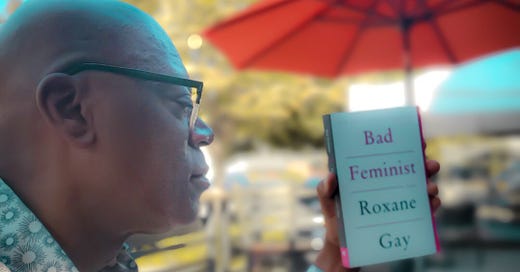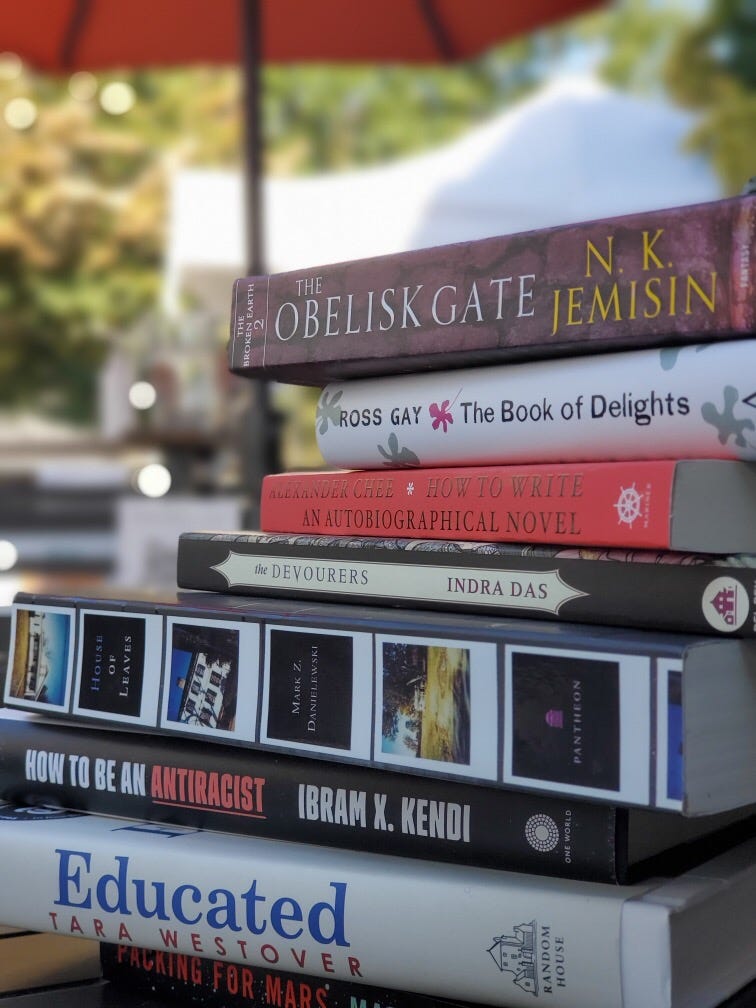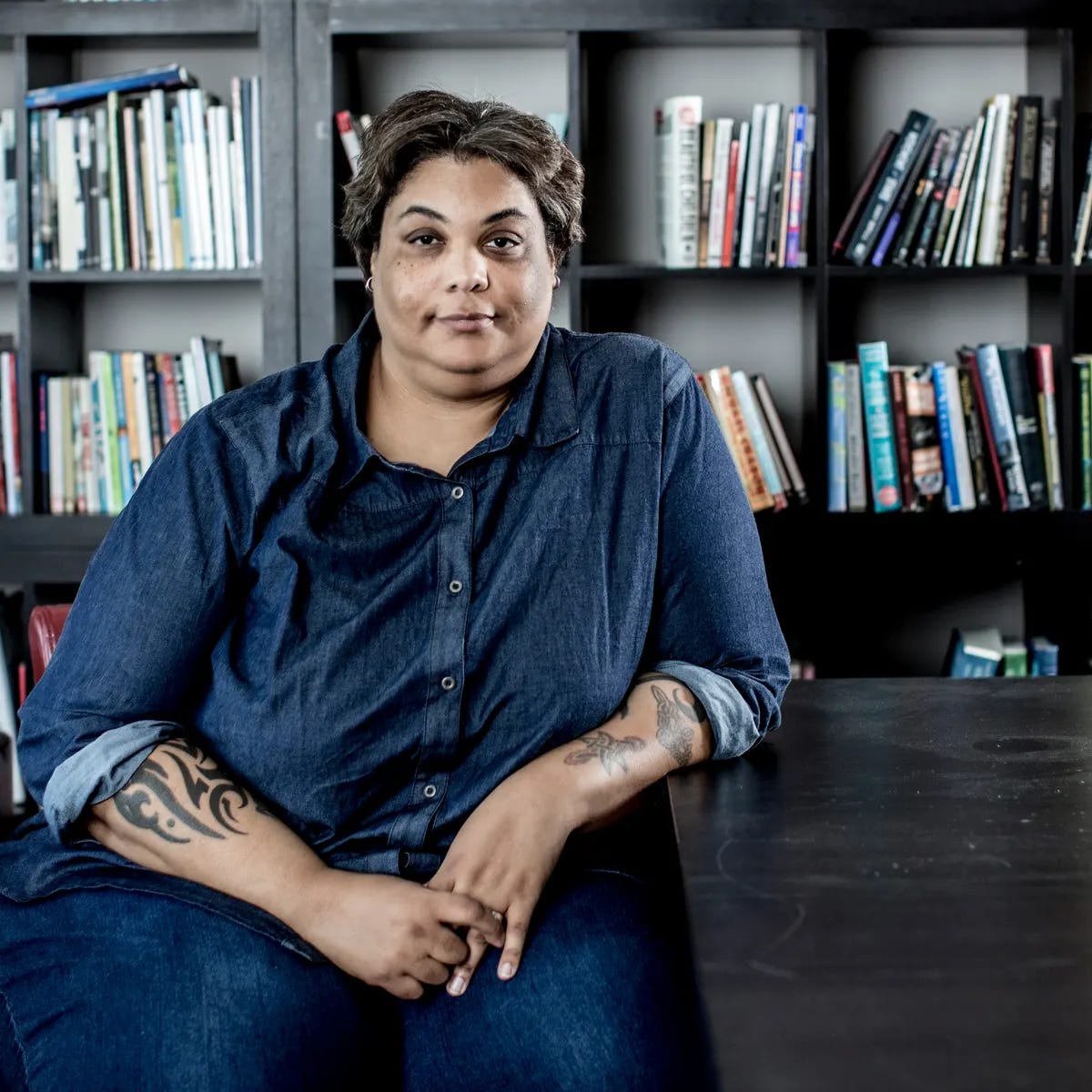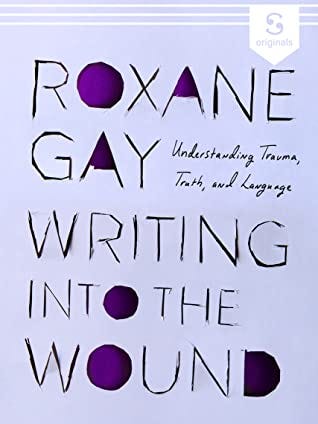My Surreal Encounter With Author Roxane Gay
September 5, 2020. On that day I was formally introduced to the work of author Roxane Gay at Denver’s BookBar.
My visit was part of the “Great Books, Great Minds” global bookstore tour. Seated on the back patio of this iconic bookshop for wine lovers, my friend Khristian and I ordered light food and cocktails. The server then proceeded to ask whether we would be interested in seeing some popular book titles which she would gladly bring to our table. “Surprise us with some of your favorite selections,” I responded.
In short order, she returned to the table with a hardy selection of titles that would make any book lover smile with excitement. In between bites of food, I took inventory of the twelve or so titles that adorned our table while Khristian snapped photos for the tour.
After perusing through the stacks, there was one book title that stood out— “Bad Feminist” by Roxane Gay.
I had heard the name before. And the book’s theme certainly seemed interesting, I thought. A white, middle-aged, lesbian, feminist woman with a short build and graying temples is the picture I conjured up in my mind of Gay.
I decided to purchase the book. But sadly, in true Tsundoku style, I never read it.
Fast forward to Monday, May 3, 2021. While scrolling through my Scribd app, I noticed that a new book by Roxane Gay entitled “Roxane Gay Writing Into The Wound: Understanding Trauma, Truth, and Language” was being featured. The fact that it was only 39 pages in length was enough for me to immediately download it on my digital reader.
I began reading it right away, a rarity for me given my propensity to allow books to what I call “bake for a bit.” About a quarter of the way through Gay shared an account of a podcast she appeared in years ago with Australian author and media personality Mia Freedman that rocked my boat:
“I visited the Mamamia office to appear on Freedman’s podcast and assumed everything was fine. We had, I thought, a good conversation. We discussed my work, previous and forthcoming. We talked about politics and culture. We finished the interview, and my publicist and I headed to the next stop.”
She continued:
“The podcast was released a couple of months later, the day before Hunger’s release, in fact. Freedman wrote a description of the show that was one of the most humiliating things I have ever seen in print about myself. She wrote, “A lot of planning has to go into a visit from bestselling author Roxane Gay. Will she fit into the office lift? How many steps will she have to take to get to the interview? Is there a comfortable chair that will accommodate her six-foot-three, ‘super-morbidly obese’ frame? She shared correspondences she had with my publisher, correspondences I had never sanctioned or even known about, that were equally problematic. And she said that discussing my personal business was totally fine because, she believed, it was all part of the story.”
This excerpt prompted me to immediately do a Google search on “Roxane Gay”. It goes without saying that I was stunned to find this striking picture of her, a beautiful black sista whose stories about her journey with trauma have resonated with so many.
As she says in this new book which was inspired by a course on writing trauma that she taught at Yale University:
“We are walking wounds, but I am not sure any of us know quite how to talk about it”
Here she was offering context around her own experience of being gang-raped at 12 before, as she asserts, writing “around the topic” to protect herself. It wasn’t until her book “Hunger: A Memoir of (My) Body,” that Gay opened up “directly and openly” about her sexual assault and how it changed and haunted her for over thirty years.”
In the end, Gay’s newest work underscores the vulnerabilities that all of us face when revealing our hidden life experiences and authentic selves. It is with this that I am now committed to reading the remainder of Gay’s work before 2021 is complete.







